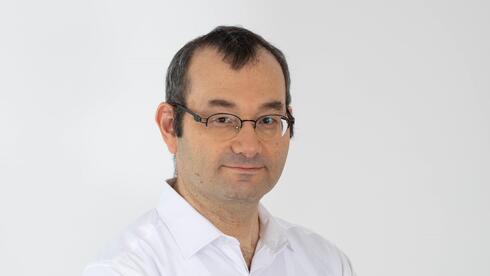
Teva’s 10-year turnaround takes shape with stunning trial results
Duvakitug signals a brighter future for the Israeli pharma giant.
A decade has passed since Teva last delivered sensational news that sent its stock soaring by nearly 20%. The company, once known as "the people's stock" in Israel and a dominant player on the Tel Aviv Stock Exchange (TASE), had long been overshadowed by challenges and setbacks. On Tuesday, however, Teva achieved a rare feat—its shares surged by 19% in an unusually high trading volume, pulling the Tel Aviv-35 index from a 0.5% intraday drop to a 1% gain. This marked an 85% increase in Teva’s share price since the beginning of the year, bringing the company back to the top spot on TASE. While Teva’s market value now stands at NIS 80 billion—far from the $80 billion record it approached in 2015—it is nonetheless a remarkable comeback for the pharmaceutical giant.
The catalyst for this sharp rally was the release of promising results from a Phase 2 clinical trial of Teva's innovative drug, Duvakitug, designed to treat inflammatory bowel diseases (IBD) such as Crohn’s disease and ulcerative colitis. These conditions are currently managed with outdated treatments like steroids, but up to 75% of Crohn's patients still require at least one surgery in their lifetime. The potential for new therapies in this field is enormous, with the IBD drug market projected to reach $31 billion by 2030. If Duvakitug continues to perform well in trials and gains FDA approval, it could become a breakthrough akin to Teva’s earlier success with Copaxone, the first innovative drug developed in Israel to treat multiple sclerosis. Copaxone generated more than $40 billion in revenue over 25 years before succumbing to generic competition.
Duvakitug, developed using proprietary technology from Teva, showed impressive efficacy in Phase 2 trials. Among colitis patients, those on the high dose experienced a 27.4% improvement compared to a placebo, while the low-dose group showed a 15.7% improvement. Crohn’s patients demonstrated even greater results, with improvements of 34.8% and 13% in the high- and low-dose groups, respectively. These results surprised even Teva’s management, as the trial adopted a relatively risky open-enrollment model that included all eligible patients without pre-screening.
Teva's CEO, Richard Francis, who identified the drug's potential early in his tenure, partnered with Sanofi in October 2023 to co-develop Duvakitug. Sanofi paid Teva $500 million upfront, with additional milestone payments of $500 million expected as the drug progresses to Phase 3 trials. If successfully commercialized, Teva and Sanofi will share profits equally. Teva will oversee the launch in Europe and Israel, while Sanofi will handle the U.S., Asia, and other global markets.
“The results from the ... study have exceeded our expectations," said Eric Hughes, head of global R&D and chief medical officer at Teva.
"These unprecedented results show that duvakitug could represent the next frontier in treating ulcerative colitis and Crohn’s disease. If the magnitude of effect persists in the Phase 3 programme, we believe we will have a differentiated medicine for IBD patients who are in urgent need of new options,” said Houman Ashrafian, Sanofi's head of R&D.
Phase 3 trials are scheduled to begin in 2025, with a potential market launch in 2028. If successful, the drug could generate significant revenue for Teva, which has been striving to recover from its financial woes following the ill-fated $40 billion acquisition of Actavis in 2016. That transaction saddled the company with $35 billion in debt, much of which it has since reduced to $15 billion. This financial turnaround has been aided by steady growth from other key drugs, such as Austedo (for tardive dyskinesia) and Ajovy (for migraines), which are expected to contribute $2 billion in revenue this year.
Teva’s recent momentum has extended beyond Duvakitug. The company has now reported seven consecutive quarters of growth, prompting credit rating agencies to upgrade its debt from junk status. Teva’s revenue forecast for 2024 has been revised upward to $16.5 billion, signaling further stability and optimism for the pharmaceutical giant's long-term recovery.















